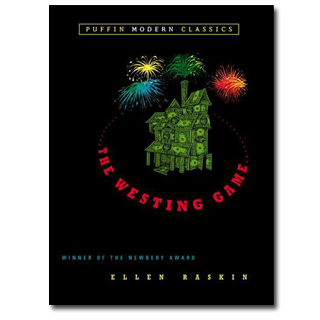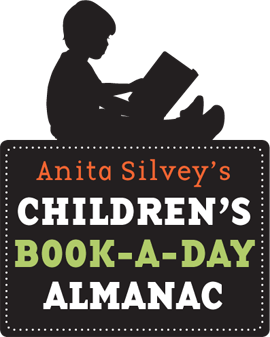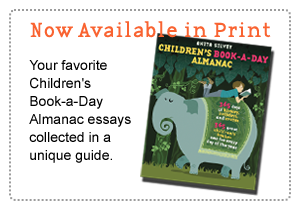
A FEW OTHER EVENTS FOR
MARCH 13:
- Happy birthday Diane Dillon (Why Mosquitoes Buzz In People’s Ears), Thomas Rockwell (How to Eat Fried Worms), Gail Owens (Encyclopedia Brown series), Lisa Campbell Ernst (Little Red Riding Hood: A Newfangled Prairie Tale).
- It’s the birth date of Dorothy Keeley Aldis (1896–1966), Hiding, Eleanor B. Heady (1917–1979), Sage Smoke.
- On this day in 1639, Harvard College (now Harvard University) is named after clergyman John Harvard. Read Of Beetles and Angels: A Boy’s Remarkable Journey From a Refugee Camp to Harvard by Mawi Asgedom and Judy Moody Goes to College by Megan McDonald, illustrated by Peter Reynolds.
- In 1781, William Herschel discovers the planet Uranus. Read Zombie Butts from Uranus by Andy Griffiths (if you dare, and/or if you know a certain kind of reluctant reader age nine through twelve who would go wild for butt jokes).
On March 13, 1928, Ellen Raskin was born in Milwaukee, Wisconsin. At first she pursued a career in fine arts, graduating from the University of Wisconsin. After she moved to New York, she began designing book jackets and created over one thousand of them.
Raskin was lured into the field of children’s books to serve as an illustrator for other people’s text. However, her first solo venture, Nothing Ever Happens on My Block—filled with stylized drawings and her quirky, off-beat humor—received rave reviews and encouraged Raskin to do more. In this book a young boy fails to see all of the amazing events going on around him—an artistic reversal of Dr. Seuss’s And to Think That I Saw It on Mulberry Street.
Having made one great shift in her career, Raskin decided to make another: writing novels. Raskin’s ingenious books—The Mysterious Disappearance of Leon (I Mean Noel), Figgs and Phantoms, and The Tattooed Potato and Other Clues—ideal for third through sixth grade rely on zany characters, slapstick humor, and clever puzzles created from letters and words.
In 1976, the bicentennial year, Raskin began drafting a novel with a historical background, a mystery, and the death of a millionaire, originally called Eight Imperfect Pairs of Heirs. In The Westing Game an eccentric millionaire draws up a will that sends his heirs on a search for his murderer. This simple idea grows amazingly complex in Raskin’s hands—aliases, disguises, word games, and trickery create a book much more fun and complex than it seems at the beginning. Although Raskin admitted she had always hoped to win a Caldecott Medal, The Westing Game received both the Boston Globe–Horn Book Award and the Newbery Medal. In her acceptance speech she talked about her detailed approach to her books: “I write and design my books to look accessible to the young reader….there will be no endless seas of gray type. I plan for margins wide enough for hands to hold, typographic variations for the eyes to rest, decorative breaks for the mind to breathe. I want my children’s books to look like a wonderful place to be.”
Although many adults thought the book was too much fun to win the Newbery, children have disagreed—it is just what they need. Fortunately all of Raskin’s drafts, and an audio of her talking about the book, can be found online. From these drafts, adults and young people can see just how much work Raskin put into creating this elegant and incredibly inventive mystery.
Happy birthday Ellen Raskin. I hope adults and children today will pick up one of your great books in your honor.
Here’s a passage from The Westing Game:
Sunset Towers faced east and had no towers. This glittery, glassy apartment house stood alone on the Lake Michigan shore five stories high. Five empty stories high.
Then one day (it happened to be the Fourth of July), a most uncommon-looking delivery boy rode around town slipping letters under the doors of the chosen tenants-to-be. The letters were signed Barney Northrup.
The delivery boy was sixty-two years old, and there was no such person as Barney Northrup.
Originally posted March 13, 2011. Updated for .













I have been reading The Westing Game to 6th graders for over 20 years, first as a teacher, now as a principal. The quirky characters, the clever puzzles, and the way everything fits together in the end, make this an excellent choice for a class read-aloud. Students are constantly begging me to read more or asking me if they are on the right track to finding the murderer, the thief, the bookie, the bomber, and the mistake. This book reminds me how smart kids are, (they notice clues that I’ve missed for 20 years) and how clever and creative Ellen Raskin must have been to create such a masterpiece.
When I saw how much children enjoyed this book, I started looking for the next great puzzle mystery. It has taken a while, but now, thankfully, we have Chasing Vermeer, The 39 Clues, and The Mysterious Benedict Society! Thanks for calling attention to this well-deserving award winner and modern classic.
Fun, confusing, surprises, great characters. A book I will read again from time to time.
Read as an adult.
Anita, thanks so much for the link to see her manuscript drafts! Wonderful to see! This is one of few books that I hoard just so I can pass it along to people who have yet to read it.
This is my favorite book of all time. I read it when I was a third grader, and have read it hundreds of times since then and marvel at the construction of the plot, the beautiful and brilliant characters and the humor. If I ever have kids their names with be Tabitha-Ruth and Theo. =)
I loved this book, and I loved sharing it with my kids.
Anita,
Thank you for great background on Ellen Raskin and her work. Last year my 6th grade literature circles selected The Westing Game as one of their shared readings. What a great time we had with the large cast of characters and bountiful clues. I was happy to see many of her titles re-released in attractively designed covers. I wonder if the Kindle versions will uphold Raskin’s intentions when it comes to text layout and reader experience?
Thanks to everyone for their comments on this wonderful book. Ernie, I share your concern about future editions maintaining Raskin’s design standards. The first printing of 15,000 copies was destroyed, because the printer had not given ample room for her design on the page. She truly cared about all the design details — and some are quite critical for reading and interpretation.
After learning about this book, I went out and bought it. I am about 30 pages into it, and I cannot wait to finish!
I LOVE this book! I suggest it to people I know who enjoy adult fiction and they are always surprised at how much they enjoy a book for young folks. When I was younger, I used to wish I could just kick people I didn’t like in the shins like Turtle. Like Dan, I also searched for well written mystery books like The Westing Game and my husband gave me The Mysterious Benedict Society, which is now one of my absolute favorites.
My childhood edition of this book is warped with remnants of meals from years past, because I couldn’t put it down long enough and would wedge it between my plate and the table. Almost fifteen years later, the edition I own has narrowly escaped this fate, but only because I’m much neater!
I vividly remember her acceptance speech for the Boston Globe-Horn Book Award. Who could forget her telling about the first printing being destroyed because the printer cut down the top and bottom margins. Somehow I don’t think that would happen today. But it does make you appreciate the physical design of fiction books which can be forgotten.
Melody: Yes, that is one of the great details about the book — they were so concerned with it being right that they destroyed the first printing (same was true with Jumanji, by the way).
My husband swears THE CASE OF THE TATOOED POTATO is the greatest children’s book ever. same author. I didn’t agree but to each his own.
This is a wonderful book to read with kids. There’s lots of room for speculating, discussing, and unraveling all the clues to come up with the solution. Love it!
When I was reading this (circa 1980?) the first time, there was a rumor going around that this book was a real mystery with a real prize, similar to Masquerade by Kit Williams.
xo,
Suzi W.
This is a brilliant book. I recommend it to students who are looking for something different – something unexpected.
Fast paced and fun. I didn’t read it as a kid, but this was one of the books that pulled me back into children’s literature. I think I’ll read it again this summer. 🙂